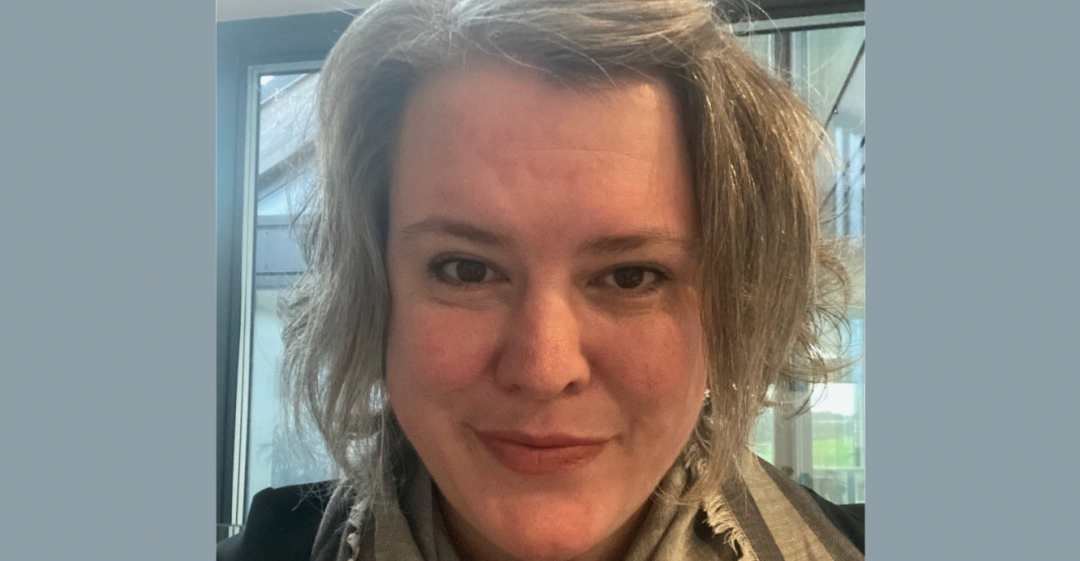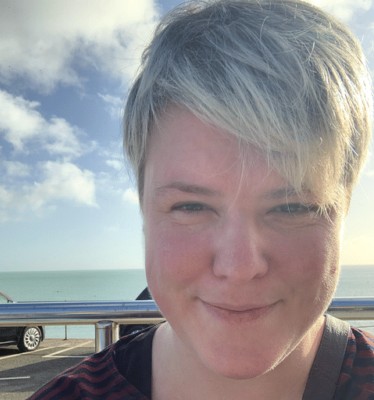“I kept asking myself, 'Why am I doing this?'”

What work were you doing previously?
I was an Applications Support Analyst for a large finance organisation.
I’d been in that role for two and a half years.
What are you doing now?
I’m an Applications Forward Engineer in a smaller finance-related company.
Why did you change?
I’d already been working in the finance industry, doing a software-based technical role I enjoyed.
But I applied for the Applications Support Analyst role because I was frequently told how great the company and its culture were. Those things are important to me.
The job itself was less technical than I was used to, but when I started it was mentioned that this would change with time. I was also going to be earning more than I had before, which was a bonus!
I felt really excited in the beginning, but two and a half years later I was bored and unsatisfied. The technical work that had been mentioned hadn’t materialised, and my performance started to suffer.
It sounds awful to say this, but because I wasn’t enjoying my work, I just stopped caring about it.
There were other downsides. The company culture I thought was so wonderful at the start turned out to be cliquey, and complaints were handled badly. This was de-motivating for me; so much that I started dreading going to work each day.
When was the moment you decided to make the change?
I had started to dislike myself.
Not only was I regularly doing work that was far from my best, but I was so miserable that I’d even stopped trying to help other people out, which is really unlike me.
I kept asking myself, “Why am I doing this?”
I wanted to leave it all behind. Not just the company, but the finance industry altogether.
How did you choose your new career?
I needed to find work that could fit me, rather than trying to squeeze myself around the requirements of a job.
At the start, I dreamed about a radical career change. I was all ready to go and make cheese in a cave!
But when I took some time to reflect upon and analyse the kind of work I really wanted, I found myself describing a lot of what I had already been doing, which was surprising.
I realised that I wasn’t necessarily against working in finance or software, I just had to find the right company to do it in.
Are you happy with the change?
Yes, very.
My work is much more interesting these days, and I’m part of a great company that cares about its people.
What could be better?
What do you miss, and what don’t you miss?
Part of the recruitment process for my new job involved a ‘culture’ interview, which was attended by the company’s CEO.
It was clear that he took a genuine interest in who was going to be working there, and I realised how much I missed that level of care in my old company.
That interview convinced me even more that changing was the right thing for me.
How did you go about making the shift?
I had no idea where to start, so I signed up for the Careershifters Career Change Launch Pad.
One of the exercises we did involved helped me find some much-needed clarity, not just about the type of work I wanted to do, but the conditions and the environment I wanted to do it in.
For example, I wanted to work fewer hours, and do more from home. I also wanted to work for a smaller, friendlier company that had a more meaningful purpose than pure finance.
Then, completely by chance, a friend posted on social media that he was looking for someone to join his new team, which sounded great. We’d worked together briefly in the past, so I contacted him and arranged a chat to find out more.
Before I asked him any questions about the job, I asked about the company… such as what, specifically, did he like about it? The conversation was so absorbing, that we ended up chatting for over two hours!
I found out that if I got the job, I’d be working in a team that consisted of just him and me at the start. I’d be able to get involved not only in designing my own working conditions over time, but also in building and developing a larger team.
That really appealed to me - I couldn’t wait to get my teeth into it all!
I decided to apply for the job, which involved a four-stage interview process. I thought that sounded excessive at first, but it was handled really well, and it also gave me a fantastic opportunity to find out more about the company.
Plus, I ended up being successful!
What didn’t go well? What wrong turns did you take?
At the start of my shift, I made some early job applications, including one for a technical role I loved the sound of.
I was lucky enough to be invited for an interview, which I thought couldn’t have gone better. I left feeling on top of the world, but I was told later on that although they wanted to offer me the job, they couldn’t because I lacked the right experience.
It didn’t help that the first UK pandemic lockdown was already in full swing at that point. It felt as though all hope was lost.
I started wondering if I’d ever be successful in changing my career, and whether it might be better to just stay in my old job until the pandemic was over.
But luckily, I didn’t listen to that negative inner voice.
How did you handle your finances to make your shift possible?
My shift has involved taking a slight pay cut, but that was a conscious decision.
I’m much happier in my new job, and to me, that matters more than money.
What was the most difficult thing about changing?
At the beginning of the career change process, I suffered from ‘choice overload’.
There were so many things I wanted to do, that I found it hard to narrow them all down.
Aside from the Launch Pad resources, which were invaluable, taking a step back to think about what I really wanted helped me to focus.
I also took lots of long walks, which helped to clear my head!
Then, when I was finally offered my new job, I felt apprehensive about working so closely with someone I’d only worked with fleetingly in the past. If you’re in a team of just two, you really need to get on.
Happily, we do.
What help did you get? 
During the Launch Pad, regularly listening to other people’s stories and hearing about their efforts helped me believe that career change is always possible, even during a pandemic.
A friend had also recently made a successful shift into a new career, and that helped to keep me motivated whenever I felt disheartened.
What have you learnt in the process?
It might sound strange, but I learnt that fulfilment doesn’t only come from work.
I’ve started looking at life as something like a pick ‘n’ mix selection - with happiness and fulfilment available in lots of different places!
For example, I felt a strong need to be useful, so I started volunteering for my local community centre. I packed and delivered food, and I ran free technical sessions for people who need extra help with computers.
I’ve also got back into creating art in my spare time, which I’ve always enjoyed on a personal level, just as something for myself.
Finding the right job can also involve compromise. Because I’m in a team of just two people at the moment, it’s not possible for me to work fewer hours.
But I decided that five days a week is fine if I’m happy… which I am!
What do you wish you'd done differently?
I think all of my shift experiences have been valuable, including the job interviews I didn’t get.
Looking back, I sometimes wish I’d known a bit more about what I wanted earlier on. But I suppose that’s the benefit of hindsight!
What would you advise others to do in the same situation?
Be aware that a new career won’t necessarily mean ticking everything off your ‘most wanted’ list in life. You may have to find fulfilment from other places, too.
Don’t be too hard on yourself, either.
Changing careers is a huge personal task, and it’s often complicated, so if you need to do as I did, and take some time out to breathe every now and again, do!
Marlous took part in our Career Change Launch Pad. If you're ready to join a group of bright, motivated career changers on a structured programme to help you find more fulfilling work, you can find out more here.
What lessons could you take from Marlous's story to use in your own career change? Let us know in the comments below.



